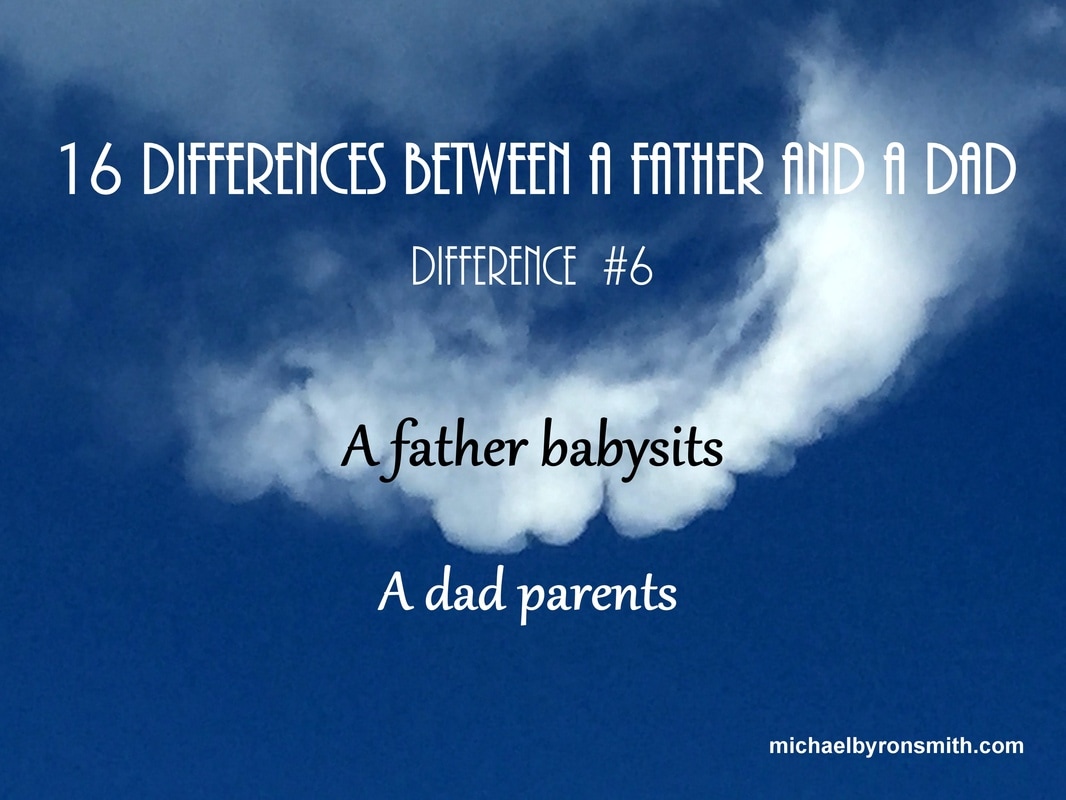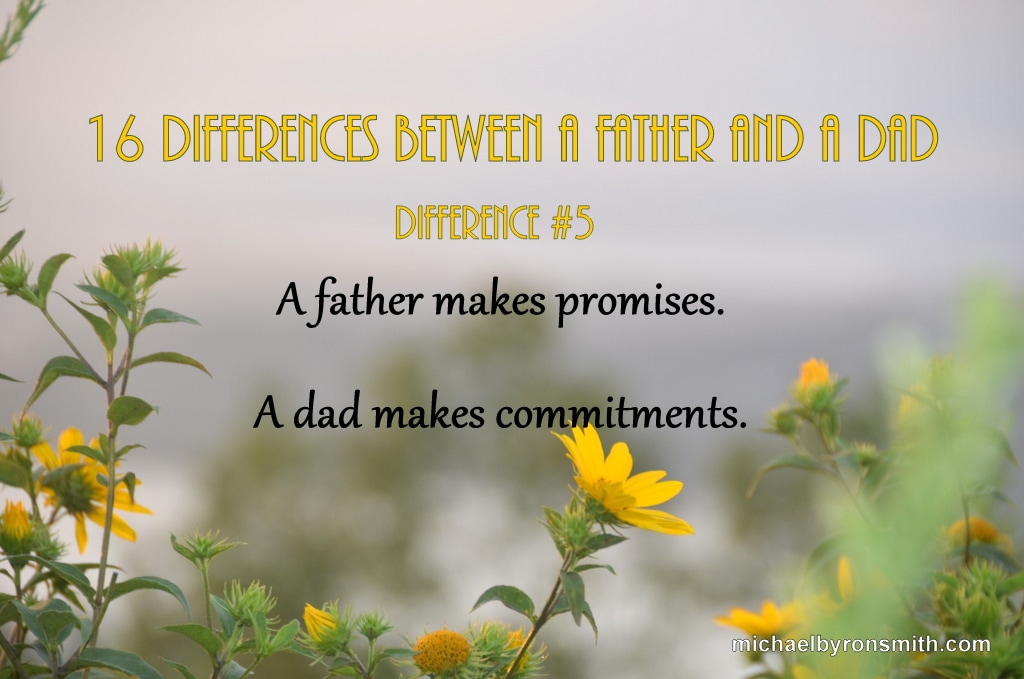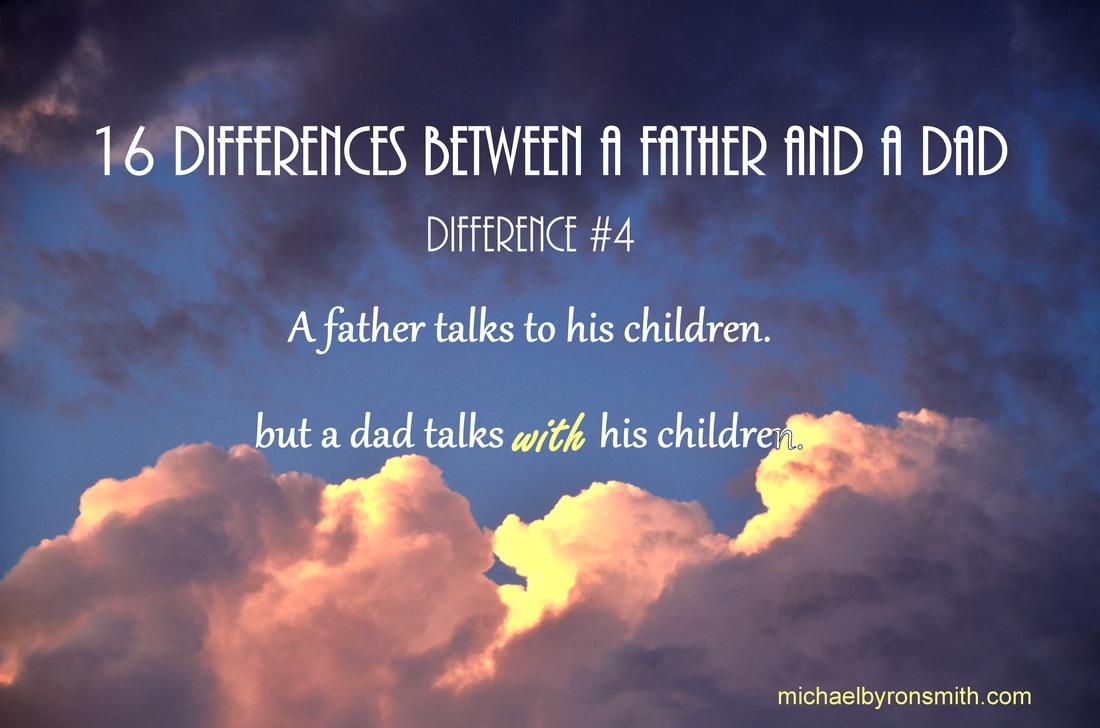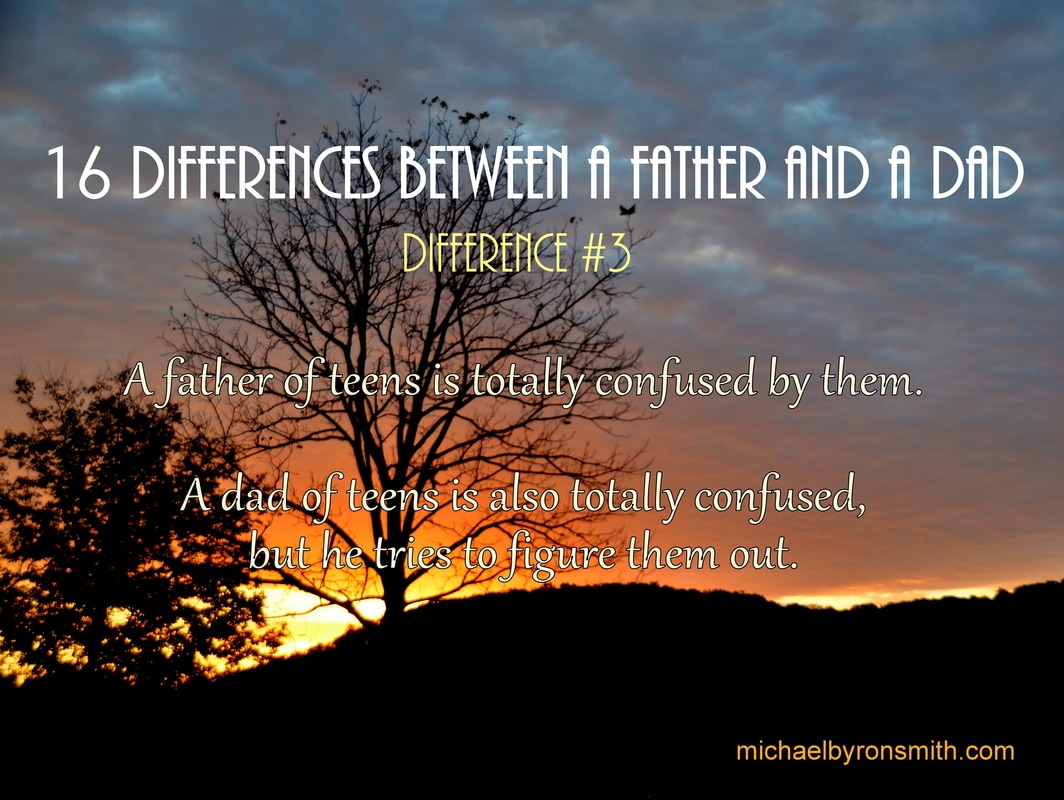It may not be said as often as in the past, but some fathers, when left alone with their kids, say they are babysitting. Well, unless you’re 13 years old and making below minimum salary, you are not babysitting. At least you shouldn’t be!
Fathers must not be reliant on mothers to know how to take care of their own children. Sure, there are things to learn as a new parent – so learn them! You learn by watching, listening, asking, and doing. To say you are babysitting is to infer that you are there as a safety net in case something goes wrong. No mingling, teaching, bonding, or even disciplining going on. As a babysitter, you are an observer, a monitor, a passive being in a world of opportunity.
As I often do, I refer to my own father when I write about these differences between a father and a dad. After all, he is my inspiration. To be clear, I loved my father. He just wasn’t a dad in the sense that he was a loving, involved, nurturer. To that end, my father didn’t even stretch into the minor role of a babysitter. Any occasion or memory where my siblings and I were alone in his charge totally escapes me. When my mom was not around I was the babysitter, there as a safety net in the event something went wrong.
A father who is also a dad, parents (a verb)! He discusses parenting techniques and goals with the mother. Compromises and agreements must be made in raising children if differences exist. Without a united front, you will raise children who learn manipulation. You teach them to be unfair or to use exploitation to get what they want. A father who does not co-parent is a sucker for manipulation!
A Dad’s Self-Inspection Checklist
To have some idea of what kind of dad you are, I wrote a checklist which is in my book, “The Power of Dadhood”. Below are just the major headings, the detailed questions of each may be found here.
- Are you there for them, not just around?
- Do you help your children face their fears?
- Does your family work together and support each other?
- Are you a good example to your children and do you represent yourself well?
- Is building the character of your children a conscious part of your parenting?
Summary
Fathers are equal in rights and responsibilities to mothers when it involves their children. Never abrogate those rights. Don’t ever feel overmatched. Never be disinterested. Always be involved. Never be minimized as a father!
#powerofdadhood









